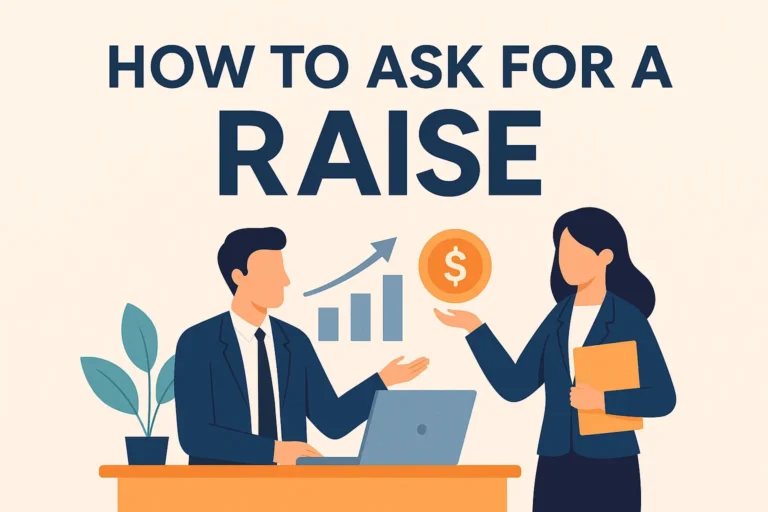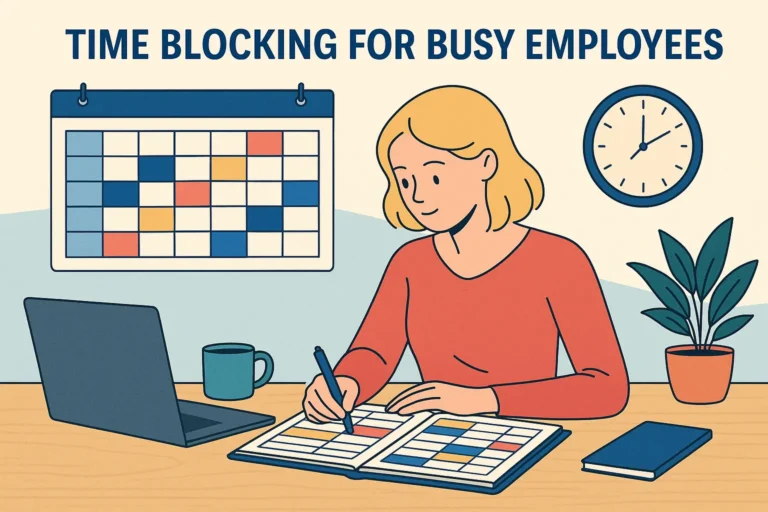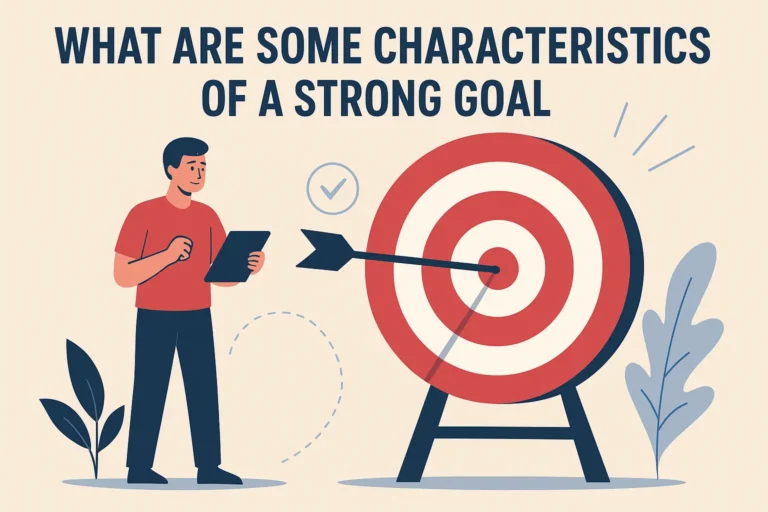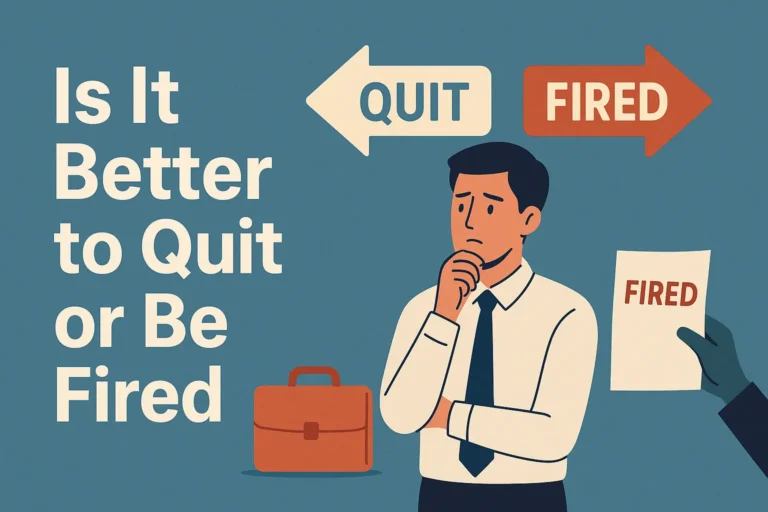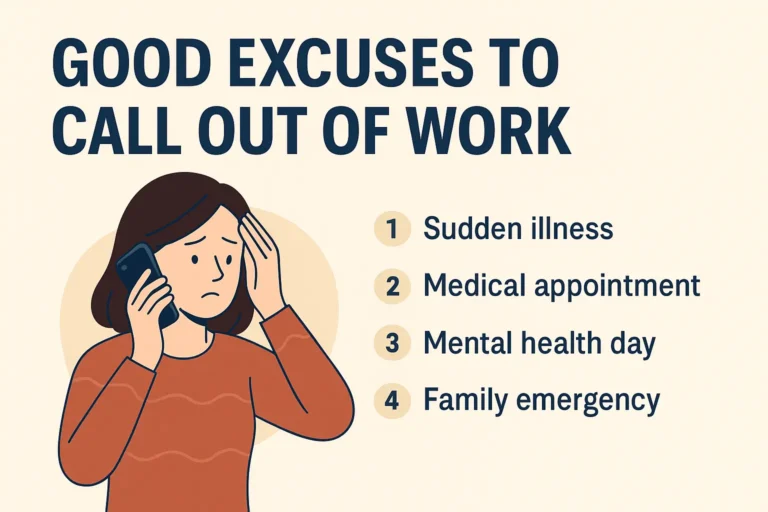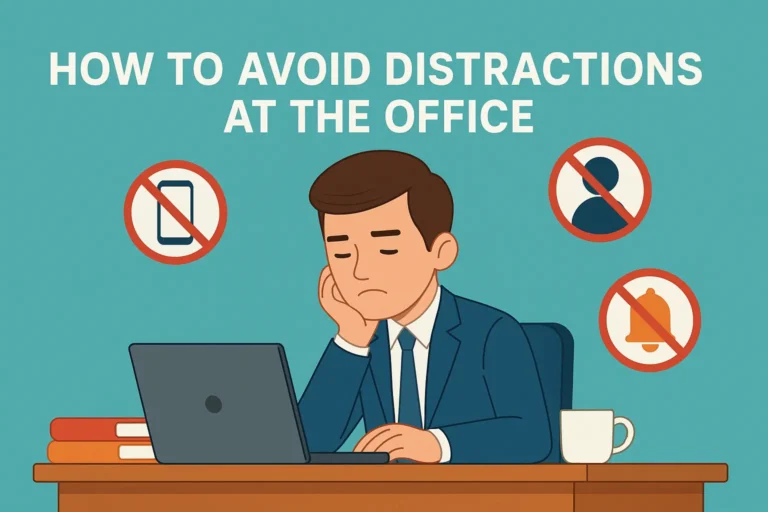How to Take Ownership as an Employee — Simple Actions That Work
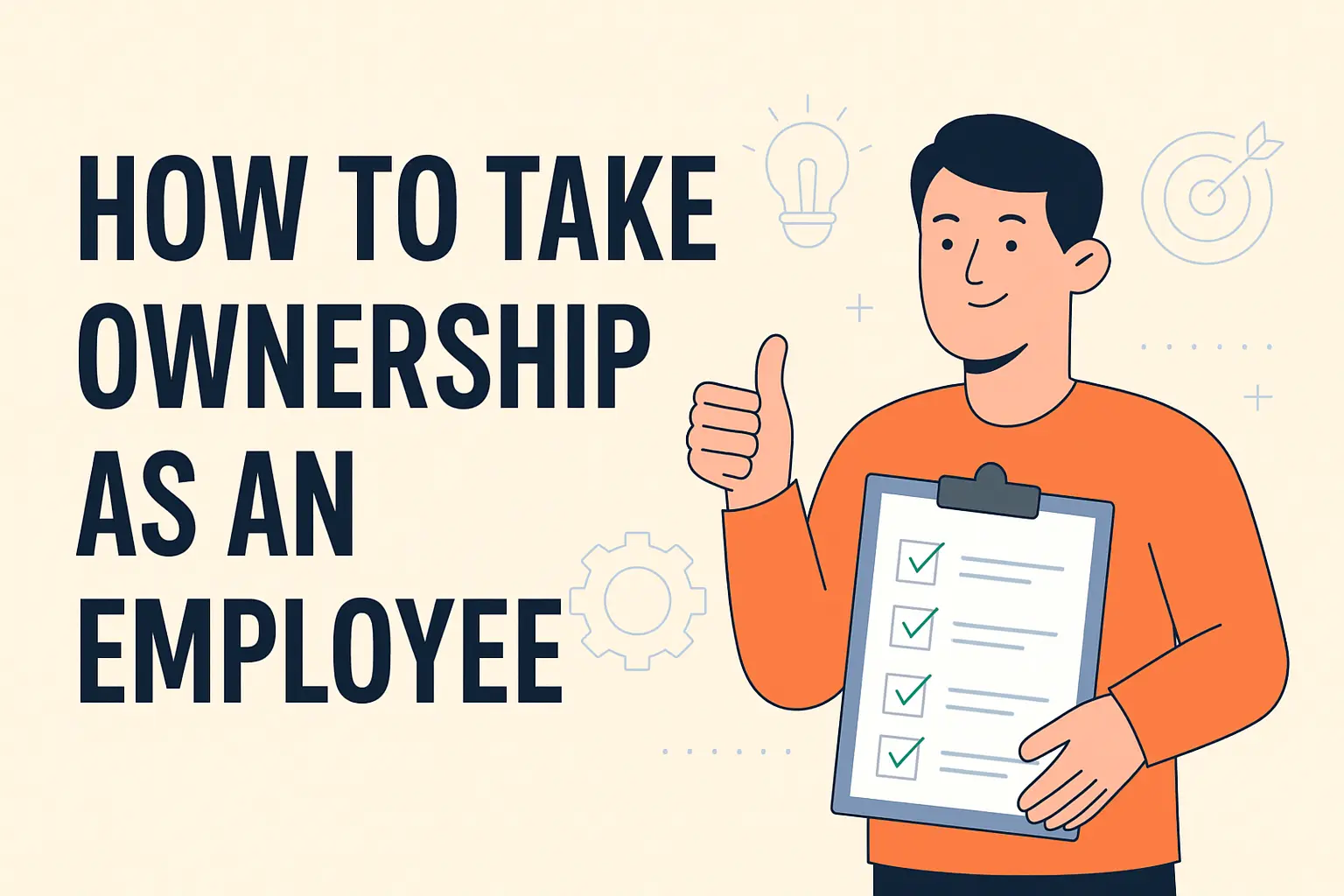
How to take ownership as an employee isn’t some complicated idea. It starts the moment you stop waiting for someone to tell you what to do. The truth is, no one wants to chase someone down to finish a job. If your manager has to remind you twice, you’ve already lost a little trust. On the other hand, when you own your tasks, fix your mistakes, and speak up with ideas—you stand out. You become dependable. And dependable people grow faster, get more respect, and feel better about their work. This kind of attitude doesn’t need a title—it starts with a choice. A daily one.
|
Step |
Action |
|---|---|
|
Start with mindset |
Think of tasks as your responsibility—not just assignments |
|
Know your role |
Understand what’s expected before you begin |
|
Act without waiting |
Step in early when you notice gaps |
|
Fix mistakes directly |
Don’t shift blame—acknowledge and correct quickly |
|
Solve before asking |
Attempt a solution before running to your manager |
|
Follow up proactively |
Give updates before you’re asked |
|
Ask for feedback |
Regularly seek it—and apply it |
|
Help the team |
Go beyond your tasks and support the team’s success |
What It Means to Take Ownership as an Employee
Taking ownership at work isn’t about doing more work—it’s about how you think, how you act, and how seriously you take your role. It’s not just your job title that matters. What counts is the way you treat every task like it belongs to you. When something goes wrong, you don’t pass the blame or hide behind silence. You face it, fix it, and learn from it.
This doesn’t mean you always have the perfect answer. It means you stop saying, “That’s not my problem.” It’s about showing up with purpose, paying attention to results, and staying responsible even when no one’s watching.
Personal Accountability
Owning your actions at work means no excuses. If something slips, you don’t point fingers. You say, “That’s on me,” and then you do what needs to be done. That attitude sets you apart fast.
It’s not just about owning mistakes—it’s about owning wins too. Finishing something on time? Hitting the target early? That’s yours. Not in a loud, show-off way, but in the quiet way that shows people they can count on you.
When you work like your name’s on the results, your whole mindset shifts. You think more clearly. You work with more care. That’s personal accountability in action.
Taking Initiative Without Being Asked
You know what doesn’t need permission? Doing the right thing. Taking initiative means you step in, not because someone told you to, but because you noticed something needs doing.
The printer’s jammed? Fix it. A deadline’s at risk? Flag it early. A teammate looks stuck? Offer help before they ask. It’s these simple moves that shape you into someone others trust.
People who wait around for directions all day don’t grow. But the ones who pay attention, act early, and spot problems before they grow? They get noticed—in the right way.
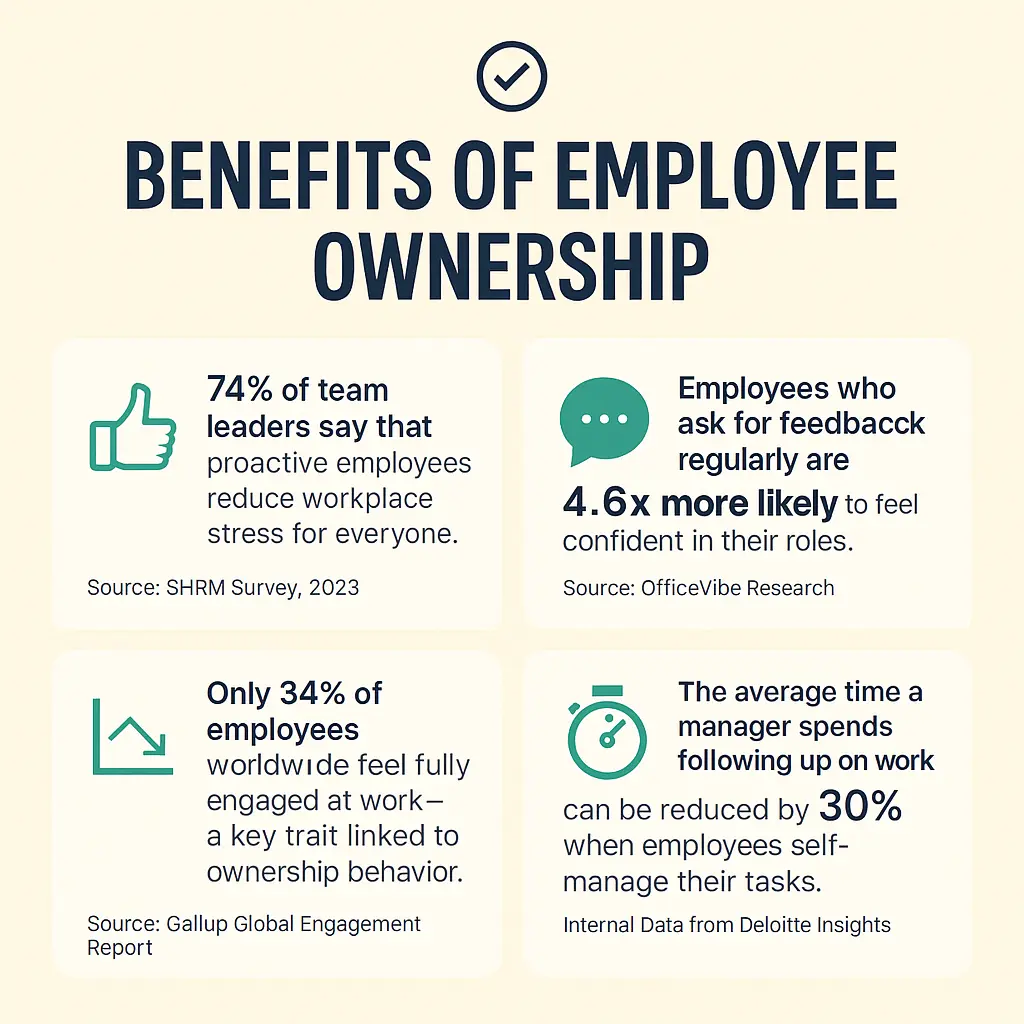
Why Taking Ownership at Work Matters
This isn’t just about doing a good job—it’s about how others see you. And trust plays a big part in that. When people see that you’re responsible, they stop checking over your shoulder. They know you’ll handle it. That kind of trust doesn’t come from talk—it comes from proof.
Builds Trust with Managers and Coworkers
Trust doesn’t come wrapped in praise. It’s earned when you show up, deliver on promises, and clean up messes without drama. Managers remember the people who don’t make them chase updates. Coworkers notice the ones who don’t dodge hard tasks.
Being trusted means you get more room to work how you want. You get the benefit of the doubt. You get taken seriously. That’s not something you ask for—it’s something you prove, one job at a time.
Boosts Career Growth and Job Satisfaction
When you start acting like the job matters, it changes how others treat you—and how you feel about yourself. People who take ownership don’t just get better tasks. They get better chances. Promotions, raises, bigger roles. These don’t fall from the sky—they come to people who show they’re ready.
Plus, your own satisfaction grows. You stop feeling stuck. You feel like your work means something, because it actually does. You’re not waiting anymore. You’re moving.
Signs You’re Not Taking Enough Ownership
Sometimes it’s not obvious. You might think you’re doing fine, but small habits tell a different story. Here’s how to spot them and shift course.
Blaming Others for Mistakes
It’s easy to point fingers. “They didn’t tell me.” “I thought it was their job.” The more you say it, the more it becomes your habit—and habits shape how people see you.
Taking ownership means you deal with your part first. That doesn’t mean ignoring team issues. But starting with your own actions shows maturity. People respect that. And when the team sees you owning your mistakes, they’re more likely to fix theirs too.
Waiting for Instructions All the Time
This one’s common. You sit there, not sure what’s next, waiting for someone to spell it out. But here’s the catch—leaders don’t wait. They look around, spot what’s missing, and jump in.
Not taking that step means you’re missing chances every day. Small things you could’ve done early. Fixes you saw but ignored. Good employees follow instructions. Great ones don’t wait for them.
How to Take Ownership as an Employee (Step-by-Step)
Ownership starts from within. No one can hand it to you. It’s not in a job title or a fancy role—it’s in how you think, act, and respond to what’s in front of you. Here’s how to build it into your daily work in the simplest, most honest way.
Start with your mindset
It begins here. You can either see tasks as something “you have to do” or something “you’re in charge of.” The second one changes everything. You stop thinking like a passenger and start acting like the driver. Ownership isn’t just a skill—it’s a decision you make every day.
Know your responsibilities
When you’re not clear about what’s expected, it’s easy to drop the ball. Understand your role, your tasks, your deadlines. Don’t assume. Ask. Get clear. Write things down. When you know what’s yours, you can fully own it without second-guessing or hesitating.
Take action without waiting
You saw something wrong. You knew it needed attention. But you paused, maybe hoping someone else would handle it. That moment? It costs trust. Ownership means you take that first step. Not to show off—but to show up. Being quick to act doesn’t mean rushing. It means being alert, and not frozen.
Fix your mistakes without excuses
We all mess up. That’s human. The problem starts when we hide, deny, or shift the blame. A person who owns their mistake earns quiet respect. No grand speeches needed. Just say what happened, fix what you can, and make sure it doesn’t happen twice. That’s stronger than any apology.
Think of solutions before asking for help
Running to your manager every time something’s unclear? That’s not ownership. Pause for a moment, think, and try to solve it on your own first. Even if your idea isn’t perfect, it shows you care enough to try. Leaders notice that. And they appreciate the effort more than the right answer.
Fact Check
82% of managers say employees who take ownership are more likely to be considered for leadership roles.
Follow up on tasks without reminders
If someone has to remind you, they’ve already lost a little faith in you. Following up isn’t just polite—it proves you’re paying attention. Keep track of what’s on your plate. Check in early. Deliver updates before they’re requested. That kind of discipline doesn’t go unnoticed.
Ask for feedback and use it
Some avoid feedback. It feels uncomfortable. But someone who owns their role wants to know what can be better. Ask for it without being pushed. And when you get it, apply it. Don’t just nod and forget. The ones who grow fast are the ones who listen sharp.
Support team goals, not just personal tasks
It’s easy to stay in your lane and ignore the bigger picture. But real ownership isn’t just about what’s on your to-do list. It’s also how you help others succeed. Share knowledge. Jump in when someone’s swamped. The team wins together or loses together. That mindset spreads fast—and lifts everyone up.
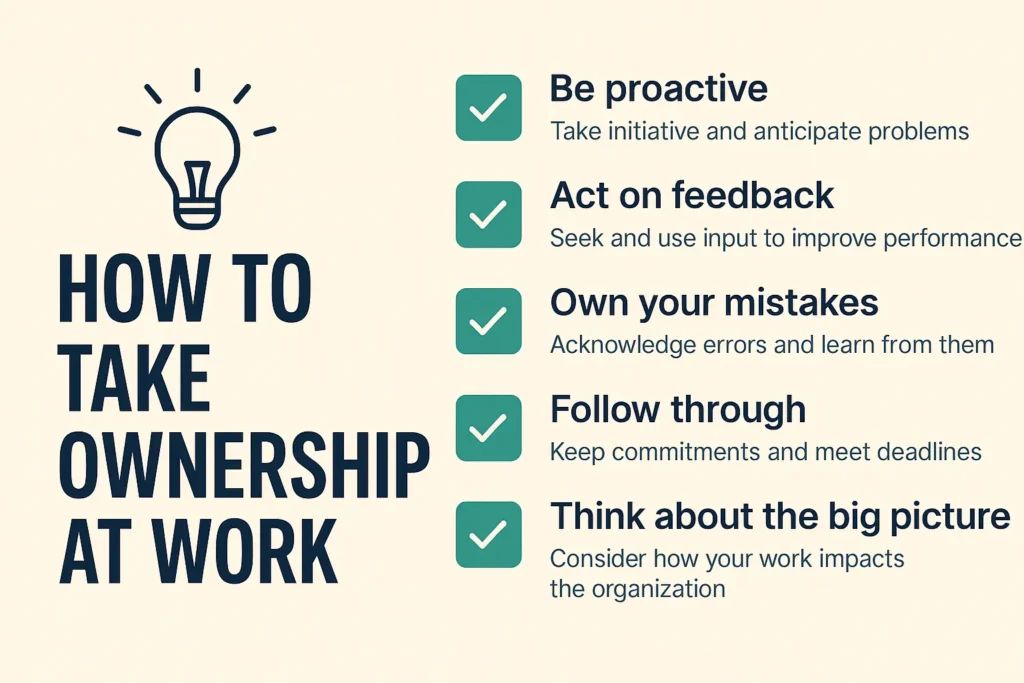
Common Mistakes to Avoid When Trying to Show Ownership
Even with good intentions, it’s easy to go off track. Some moves might look like ownership—but they actually do more harm than good. Catch these early before they become habits.
Doing everything alone
Trying to carry the whole load doesn’t prove you’re strong. It usually just leads to burnout. Ownership isn’t isolation. It’s knowing what’s yours, asking for help when it’s smart, and keeping the team looped in. You’re not the hero—you’re part of a system.
Saying yes to everything
You might think saying yes to every task shows you’re committed. But when you overpromise, you drop things. That doesn’t show ownership—it shows poor judgment. Know your limits. Say yes to what you can do well. And be honest when something’s too much. That honesty builds trust faster than a weak yes.
Covering up errors
Hiding mistakes might seem safer in the moment, but it always comes back around. Owning up quickly keeps small problems from turning into big ones. Covering them up creates silence, stress, and suspicion. The brave path? Say it early, fix it fast.
Examples of Ownership in Real Workplace Situations
You don’t need a job title or leadership badge to take ownership. You just need to pay attention and act when others pause. Here’s how that looks in real situations:
Handling a client issue on your own
The client’s unhappy. You didn’t cause it, but you’re the one who caught it. Instead of passing it off, you step in. You apologize, offer a fix, and keep the team informed. You didn’t just protect the brand—you showed leadership without asking for credit.
Noticing a delay and solving it before being told
Something’s stuck. The delivery’s late. You notice. You don’t wait for someone else to panic—you raise it early, find out the cause, and help smooth things out. The job gets done on time, and people see you as someone who stays a step ahead.
Admitting a mistake before it spreads
You realize you sent the wrong report. It hasn’t been noticed yet. Instead of waiting, you flag it, send the correct one, and explain what went wrong. No drama. No hiding. That quiet move makes people trust you more, not less.
Conclusion
When you make ownership part of your routine, not only does your value grow—so does your confidence, your opportunities, and your overall satisfaction at work. You become dependable, respected, and trusted. That’s the kind of employee every company wants more of.

About the Author
Jonathan Savage is a leadership strategist who helps teams boost performance through clarity and structure. At SmartSuccessGuide.com, he shares proven frameworks for building focused, high-performing teams that deliver real results.

